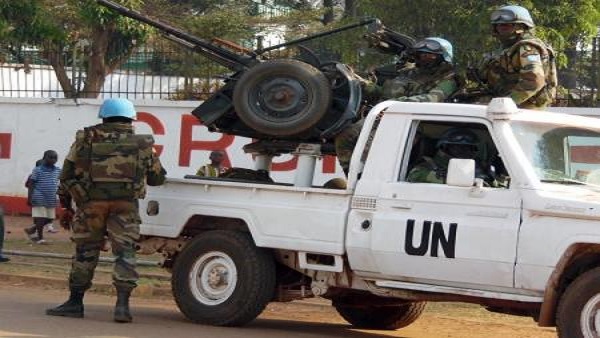A United Nations peacekeeper in Central African Republic was killed and eight others wounded late on Monday when their convoy was attacked by unknown assailants in the southeast of the country, the U.N. mission (MINUSCA) said on Tuesday.
Four peacekeepers are missing following the attack on the convoy near the town of Bangassou, about 730 km (453 miles) east of the capital Bangui, the mission said in a statement.
The peacekeeper who was killed was from Cambodia, while the injured and missing are Cambodian and Moroccan, MINUSCA said.
A U.N. helicopter and peacekeepers have been sent to secure the area and search for the missing while the injured were evacuated by plane to Bangui, the mission said.
“They are possibly hiding somewhere,” MINUSCA spokesman Herve Verhoosel told the Thomson Reuters Foundation by phone.
The attack came after five international aid agencies temporarily suspended their operations in northern Central African Republic last week because of attacks on humanitarian workers by armed groups.
Central African Republic is one of the most dangerous countries in the world for aid agencies, the U.N. Office for the Coordination of Humanitarian Affairs (OCHA) said last week, with at least 33 attacks on aid workers in the first quarter of 2017.
Central African Republic has been plagued by inter-religious violence since 2013 when mainly Muslim Seleka fighters seized power, prompting reprisals from Christian militias, known as anti-balaka.
The Seleka and other groups have since splintered, prompting further violence despite the election in March 2016 of President Faustin-Archange Touadera, which raised hopes of reconciliation.
The U.N. mission has 13,000 peacekeepers on the ground, but some civilians complain it does not do enough to protect them against dozens of armed groups.
Around 425,000 people have been uprooted by the fighting within Central African Republic, some 465,000 have fled to neighbouring countries, and more than 2.2 million, nearly half the population, need humanitarian aid, according to OCHA.
Source: Reuters



